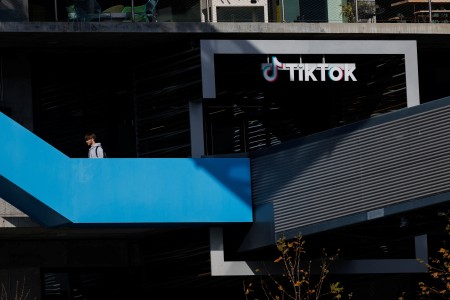By David Shepardson
WASHINGTON (Reuters) -The U.S. Justice Department and TikTok on Friday asked a U.S. appeals court to set a fast-track schedule to consider the legal challenges to a new law requiring China-based ByteDance to divest TikTok’s U.S. assets by Jan. 19 or face a ban.
TikTok, ByteDance and a group of TikTok content creators joined with the Justice Department in asking the U.S. Court of Appeals for the District of Columbia to rule by Dec. 6 to be able to seek review from the Supreme Court if needed before the U.S. deadline.
On Tuesday, a group of TikTok creators filed suit to block the law that could ban the app used by 170 million Americans, saying it has had “a profound effect on American life.”
Last week, TikTok and parent company ByteDance filed a similar lawsuit, arguing that the law violates the U.S. Constitution on a number of grounds including running afoul of First Amendment free speech protections.
“In light of the large number of users of the TikTok platform, the public at large has a significant interest in the prompt disposition of this matter,” the U.S. Justice Department and TikTok petitioners said.
TikTok said with a fast-track schedule it believes the legal challenge can be resolved without it needing to request
emergency preliminary injunctive relief.
The law, signed by President Joe Biden on April 24, gives ByteDance until Jan. 19 to sell TikTok or face a ban. The White House says it wants to see Chinese-based ownership ended on national security grounds, but not a ban on TikTok.
The parties asked the court to set the case for oral arguments as soon as practical during the September case calendar. The Justice Department said it may file classified material to support the national security justifications in secret with the court.
Earlier this week the Justice Department said the TikTok law “addresses critical national security concerns in a manner that is consistent with the First Amendment and other constitutional limitations.”
The law prohibits app stores like Apple and Alphabet’s Google from offering TikTok and bars internet hosting services from supporting TikTok unless ByteDance divests TikTok.
Driven by worries among U.S. lawmakers that China could access data on Americans or spy on them with the app, the measure was passed overwhelmingly in Congress just weeks after being introduced.
(Reporting by David Shepardson, Editing by Franklin Paul and Rod Nickel)


